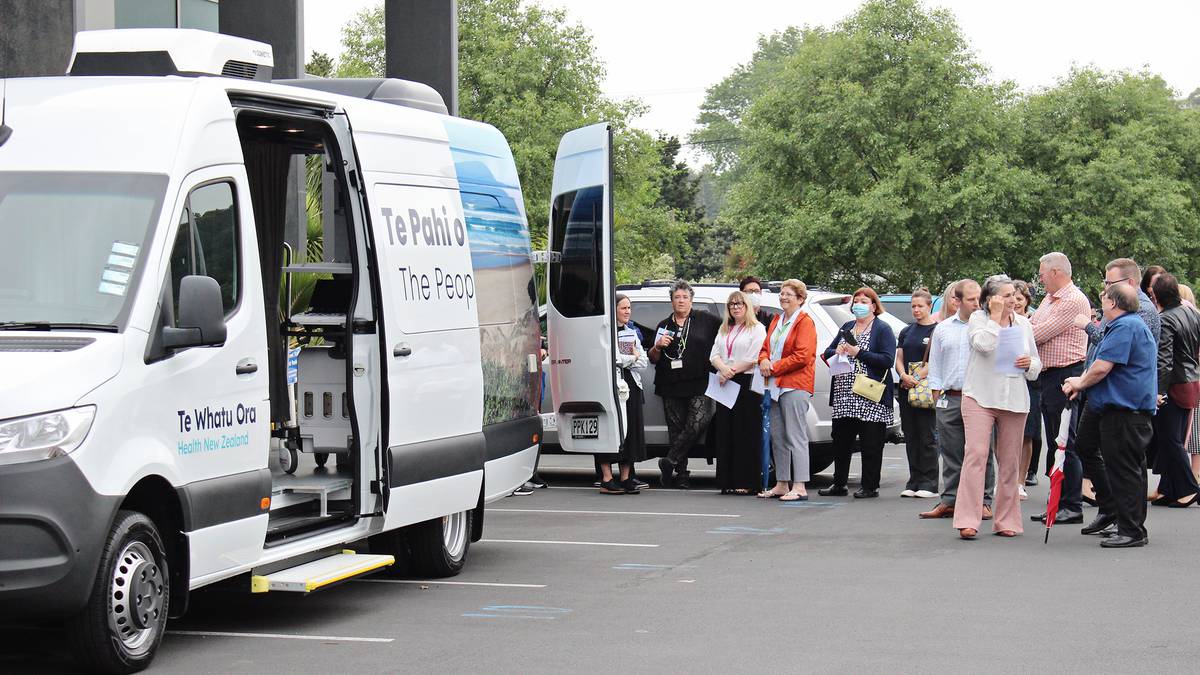The new Te Whatu Ora – Te Tai Tokerau healthcare van is heading to communities in the Mid and Far North. Photo / Supplied
A new healthcare van has hit the road in Northland, providing diagnostic services and treatment for people closer to home.
Te Whatu Ora Te Tai Tokerau’s new van, named Te Pahi O Ngā Iwi (The People’s Bus) will have the capacity to provide echocardiograms, which examine the heart, as well as vascular and eye scans.
The mobile service was officially launched by Health Minister Andrew Little in Whangārei on , before heading to the Mid and Far North to provide healthcare to people who would otherwise need to travel to a hospital.
The van was designed as a fully-equipped diagnostic clinic, with an ultrasound scanner, computer, bed and a satellite dish. It was also equipped with telehealth technology, which could be used to link with GP practices and rural hospitals in future.
Te Whatu Ora Te Tai Tokerau planned care initiative and performance manager Michaela Matich said the van had the potential to address equity issues in Northland.
“It will benefit our most vulnerable, our most deprived, to increase equity of care, improve the patient and whānau experience and their health outcomes.”
Matich said the mobile service would help deliver better health outcomes, with timely diagnosis leading to earlier treatment.
/cloudfront-ap-southeast-2.images.arcpublishing.com/nzme/GDT3XFS2DVBIBGNRX7RNEHM4AI.JPG)
Mark McGinley, general manager – surgical and support services, said the service was new and innovative.
“We hear the community voices that say ‘bring the health care to the people’ and that’s what this mobile diagnostic service is all about.”
Whangāroa Health Services’ rural outreach health and wellbeing nurse Te-Warati Ututaonga-Pawa said the van would make a difference in the area.
“We know what a huge difference early diagnosis and interventions can make. In Whangāroa we are some distance from hospitals, and not everybody has access to reliable transport. Bringing the services closer to the people will improve health outcomes.”
Lorna Smeath, clinical lead for Te Rūnanga O Whaingaroa’s Kaupapa Māori Mobile Outreach Services, said the initiative would reduce waiting times and stress for patients.
“This service will reduce the DNA (did not attend) rate, help families with travelling costs and reduce stress trying to get to the hospital. It will also reduce waiting times for appointments and provide a result that can make a differential diagnosis in determining whether to further investigate or to treat.”




